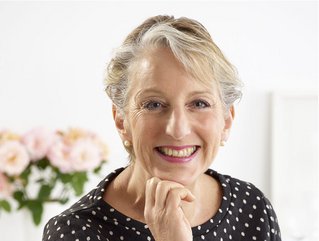Meet Lorna Rhodes who graduated & started a new career at 65

When age and experience bring benefits to a brand new career Lorna Rhodes (DipION mBANT rCNHC) from Buckinghamshire was 65 years old when, after many years as a successful cookery writer and food stylist, she launched a new career in nutritional therapy – just as most of her friends were retiring.
Following issues with her own health, including battling breast cancer, she started to seek different treatments from different therapists. Lorna became passionate about complementary medicine and turned to a naturopathic GP and kinesiology. At the same time, she was inspired by Patrick Holford’s The Optimum Nutrition Bible, which led her to study nutritional therapy with the Institute for Optimum Nutrition (ION).
Now 72, with a thriving practice offering nutritional therapy and corporate nutrition Lorna provides her clients with help and advice, tailored to their individual needs and lifestyles.
What inspired you to start a new career in nutritional therapy?
Since the early ‘80s I was attracted to the world of complementary medicine, having fallen out of love with traditional medicine. I switched to a naturopathic GP who did kinesiology, which was very radical in the ‘80s. I also read Patrick Holford’s The Optimum Nutrition Bible avidly. I made enquiries to the Institute for Optimum Nutrition (ION) to study, but didn’t feel I could manage the course, as I was so busy writing cookery books at the time. But I did get there about 15 years later!
Being an older graduate, what have you been able to bring to your practice as a result of your age and experience?
I am finding there are some benefits to being older. My personal experiences of life allow me to relate to some of the problems my clients face, whether it is stress from work, juggling a family and work, developing interpersonal skills and generally accumulating considerable information and knowledge along the way, all relevant to nutritional therapy.
In consultations, being mature does have some gravitas, as I feel I can speak with confidence and develop rapport very quickly with clients, and build trust.
What was your favourite or the most surprising part of studying?
The most surprising part of the course with ION was how complex the human body is when it comes to biochemical imbalances. Fortunately, we have many ways of looking for the cause, using functional testing, which I had no idea existed before the course. My favourite part was clinical practice, as my goal was to set up my own clinic.
How has your career path changed since graduating?
It took some time to call myself a nutritional therapist rather than a cookery writer. But now I’m established, it feels good and I am proud to be part of this community helping clients with their health problems. I still write recipes!
What’s the most rewarding aspect of having qualified?
Firstly, it felt like a huge achievement coming into the profession, may I say quite late in life, qualifying at a time when most of my friends were retiring, and I found studying challenging.
Now I love to research medical conditions I had never heard of and even referencing is second nature — never thought I would be able to say that! “Professionally, the rewards are endless, when clients feel better or weight is lost, or a condition clears up, it makes it all worthwhile. It is also a privilege for me when people put their trust in me to help support them, as well as a responsibility on my part.
What are your hopes for the future of nutritional therapy?
That the profession is accepted within the medical arena and we can work with doctors in an integrated way. This was brought home to me when I went through cancer treatment eight years ago and realised that many oncologists and doctors do not understand the power of nutrition in supporting cancer patients.






